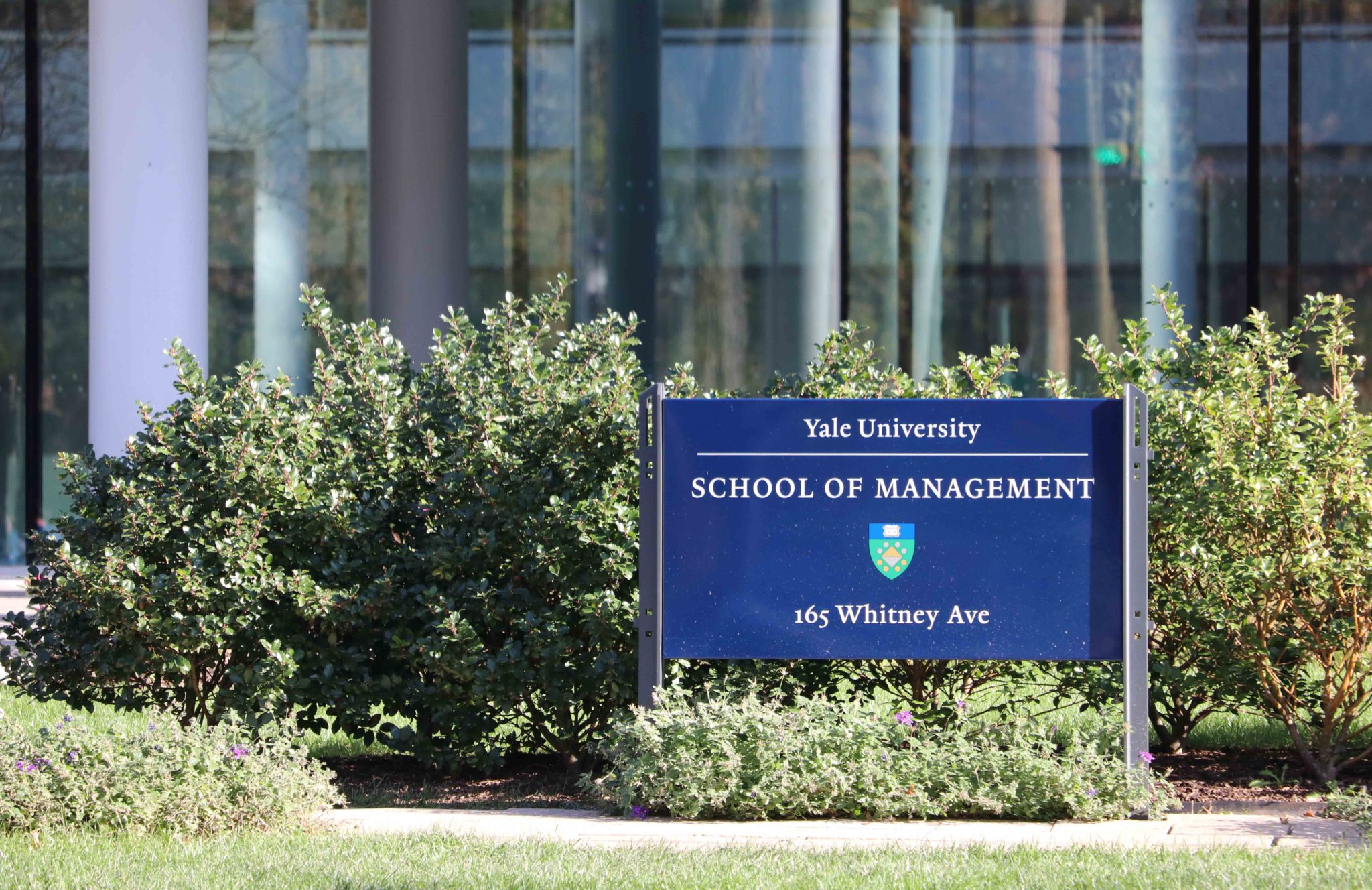
Kai Nip
Despite the School of Management’s steady rise in business school rankings over the past decade, SOM dropped seven places — from 14th to 21st — this past year according to a global analysis conducted by the Economist.
Lists of rankings are often how a business school attracts applicants, as MBA seekers often look to rankings as a heuristic for future salary and networking opportunities. On Monday, a business school blog called Poets & Quants will publish a meta-analysis of the major rankings for MBA degrees in 2019. The blog will combine rankings from Bloomberg Businessweek, Financial Times, The Economist, US News & World Report and Forbes. While SOM has fared well this year compared to American business schools, its MBA program has not received the same recognition on a global scale.
“If you look at the economist, they fell seven spots,” said John Byrne, editor-in-chief of business school blog Poets & Quants. “It’s often hard to figure out why a school falls because there are so many different metrics. The difference between where they were at 11 and 14 is negligible because the underlying stats frankly aren’t meaningful enough because the data gets clustered together and small changes in sample size and inconsequential noise can result in a change in ranking.”
Byrne said that his website will include Yale among the top ten business school this year in the United States. He did not reveal SOM’s specific position. In general, SOM performed well in this year’s rankings of American MBA programs and lost ground on two major ranking lists, Byrne said. The school ranked lower this year on Bloomberg Businessweek and The Economist lists. Byrne said that P&Q’s ranking of SOM overcame the University of Michigan’s Ross School of Business in his meta-analysis. Still, SOM has sunken several spots on global rankings of MBA programs.
SOM Assistant Dean Gabriel Rossi said he disagrees with some of the metrics used by the Economist in its rankings. For example, he said that the Economist uses pre-MBA salary in its calculation of “student quality.” Rossi said that this practice is “entirely unfair to students” at SOM who often come from public-sector and non-profit backgrounds.
In an interview with the News, Byrne explained that publications use different metrics for assigning point values to a MBA program. He said that some incorporate factors like gender parity, the number of international students and foreign language proficiency into their assessment of the school’s quality of education. Byrne said that, for his purposes, those metrics are nonsensical.
“This drop deserves our attention and we will work with The Economist to get a clearer picture of exactly what went wrong for SOM in 2019,” Rossi said. “As for the average, SOM has alternated between 11 and 12 in all of the previous five years and so our 2019 average — 12 — is a continuation of that trend.”
The P&Q ranking system weighs US News & World Report and Forbes higher than The Economist for that reason. That being said, SOM’s performance on a global scale by The Economist indicate poor performance in some of the aforementioned metrics.
“Each year, there is some movement within the rankings, both for Yale SOM and for our peer schools,” Rossi wrote in an email to the News. “Oftentimes, these are minor fluctuations that may be associated with tweaks in methodologies or some visible cohort effect. Just as we are not overly optimistic about a gain of a position or two, in any given ranking/year, we are not overly pessimistic about a loss of a position or two.”
In an October interview with the News, SOM Dean Kerwin Charles said that the rankings are useful for his purposes but not necessarily the most important metric of success for him. The small nuances in data analysis that shift the rankings on a yearly basis may underlie that point.
Deputy Dean for Academic Programs Anjani Jain, who served as interim dean of the school from 2017 to 2018, told the News that while there are annual fluctuations in rankings, “the overall trend has been patently positive.”
SOM was founded in 1971.
John Besche | john.besche@yale.edu







